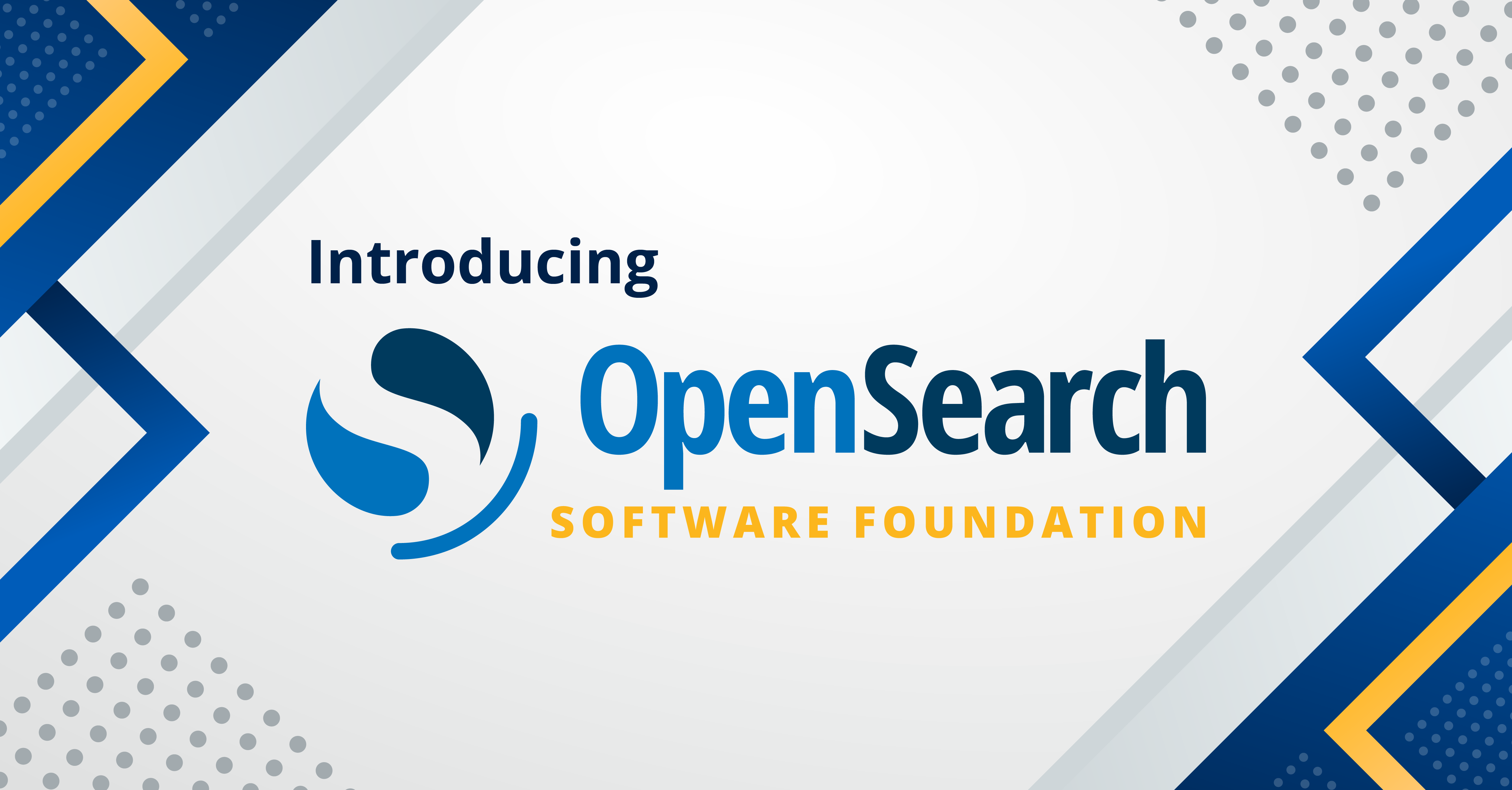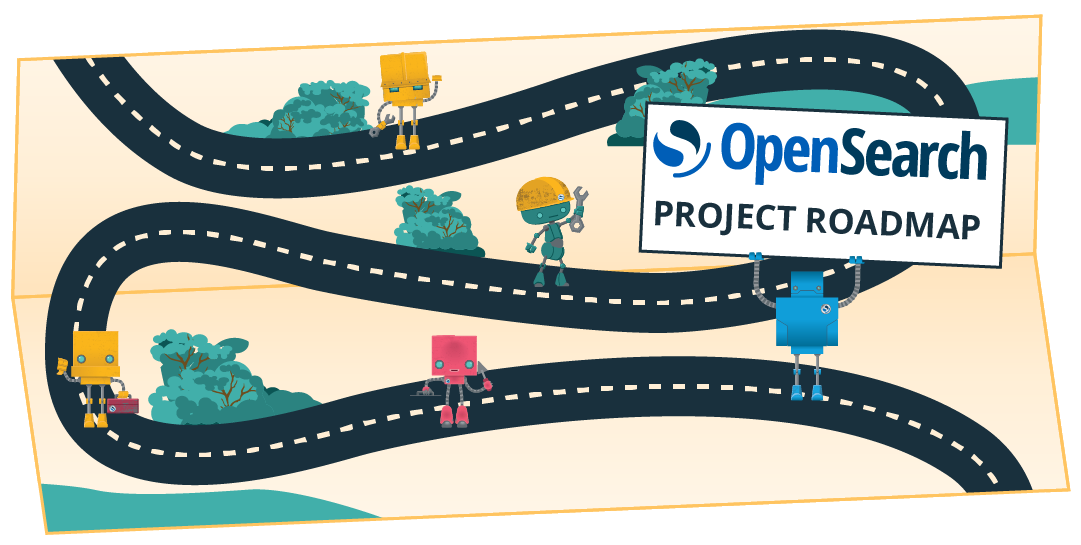From chaos to clarity: Revolutionizing OpenSearch clients and documentation using a unified API specification
In February 2024, we decided to revamp the OpenSearch API Specification repository by adopting the OpenAPI Specification. While this change offered significant benefits, we encountered some challenges during implementation. Most notably, although the OpenAPI Specification supports multiple files, its built-in modularity features weren’t sufficient for effectively organizing OpenSearch’s extensive API documentation into smaller, manageable sections. Despite these initial obstacles, we have successfully addressed these challenges over the past year:
-
The OpenSearch API comprises 1,021 routes, making it impractical to specify within a single OpenAPI YAML file. To address this, we adopted a modular structure that divides the API into namespaces and schema files. Each namespace represents an OpenSearch API domain, making the specification easier to manage and update. This approach, while not standard in the OpenAPI Specification, led us to develop a merger tool that generates a unified OpenAPI Specification file compatible with most existing OpenAPI Specification tools.
-
The OpenSearch API was developed using several custom conventions that don’t conform to OpenAPI Specification standards. To address this, we created extensions such as
x-operation-group, which groups operations performing similar tasks into a single client API function. To ensure compliance with both the OpenAPI Specification and our custom extensions, we built a custom OpenAPI Specification linter that checks the specification for consistency. -
Testing the specification at scale—required to ensure generation of valid clients—posed a significant challenge. Existing OpenAPI Specification testing frameworks were often language specific and lacked the required flexibility. To overcome this, we developed a data-driven test framework that uses tests written in YAML, making it accessible to contributors regardless of their programming expertise or programming language knowledge. With this framework, we can confidently claim the accuracy of our specification across multiple OpenSearch versions.
Key achievements
These efforts have resulted in a modular, maintainable, and testable OpenSearch API specification. With the help of OpenSearch contributors, we have reached the following important milestones over the past year:
- Complete coverage of all core OpenSearch APIs.
- 60% coverage of plugin APIs, including Index Management, Security, and ML Commons, with plans to reach full coverage by the end of 2025.
- 100% test coverage of all APIs in the specification, covering OpenSearch 1.x and 2.x.
Using the specification to improve OpenSearch clients
Historically, maintaining OpenSearch clients was a tedious and error-prone process. In the past 2 years, more than half of the GitHub issues created in the OpenSearch client repositories were related to missing or outdated API functions. The rapid addition of new features and APIs to OpenSearch exceeded our maintainers’ capacity to add them to the specification. This constant need to update the specification also prevented us from focusing on other important aspects of client development, such as performance improvements.
With the unified OpenSearch API specification, we’ve begun generating API functions directly from the specification. This approach eliminates manual updates, improves consistency, and ensures that all clients stay synchronized with the latest server capabilities.
Here are the key milestones:
- We updated the legacy API generators for the PHP, .NET, and Python clients with the ability to read and parse the OpenAPI specification.
- In December, we released a new major version of the JavaScript client. This JavaScript client version’s API functions are generated entirely from the specification. The client also includes a complete set of request and response types for each API function, which was the most requested feature from our TypeScript users. For more information, see this blog post.
- We overhauled the Ruby client, giving it the ability to use the OpenSearch API specification as the source for its API implementation. The newly generated API functions provide greater consistency and predictability compared to their manually written predecessors. For example, all input arguments are now cloned into a new hash before any operations are performed on them—a step that was missing during manual function writing. The new major version of the Ruby client, featuring these generated API functions, is currently in beta testing and will be released in the coming months.
- We completely revamped the Java client, our most verbose and feature-rich high-level client, with strongly typed request and response objects. We replaced hundreds of thousands of lines of legacy code in this client. Additionally, while working on an API generator for this client, we uncovered many errors in the specification that we have since fixed.
The implementation of API generators has transformed our client development process. Instead of manually updating API functions, we can now focus on enhancing client performance, stability, and usability. Using the OpenSearch API specification as a single reference ensures that all clients remain synchronized with each other. When developers add a new API to OpenSearch or its plugins, they simply update the specification, and the functionality becomes immediately available across all OpenSearch clients. Similarly, when an API bug is discovered in one client, fixing it in the specification automatically resolves the issue across all clients. The generated API functions also provide much greater feature and behavior consistency compared to their previous manually written counterparts.
Looking ahead, having a complete specification will enable us to rapidly develop new clients in additional programming languages!
Generating documentation from the specification
Like the clients, the OpenSearch documentation faced challenges in keeping pace with the rapid development of the OpenSearch server and plugins. The process of manually writing and updating descriptions for each API’s parameters, requests, and responses was time consuming and error prone. Documentation would occasionally become inconsistent with both the clients and the server, causing user confusion. These inconsistencies created a poor experience for our users and made it more difficult for new applications to adopt OpenSearch.
We’ve begun addressing this by generating documentation components directly from the OpenSearch API specification. For example, path and query parameter tables are now generated from the specification, replacing manually written tables. This process has also helped to uncover and correct specification errors.
In the near future, the following components will also be generated from the specification:
- Request and response body fields and their descriptions
- Examples of requests and responses, derived from tests in the specification repository
- Usage examples for each client language
These changes ensure that the documentation remains accurate and consistent with the server and clients, creating a better experience for developers and reducing barriers to OpenSearch adoption.
Thank you
Over the past year, it has been rewarding to witness the evolution and improvement of the OpenSearch API specification. The specification now serves as the authoritative reference for the OpenSearch clients, documentation, and server, ensuring consistency across all components. We look forward to seeing how the OpenSearch Project will continue to grow with the OpenSearch API specification as its foundation.
We couldn’t have achieved this without the dedication of our contributors. Their feedback, suggestions, and contributions have been invaluable to the project. We are especially grateful to the following contributors for their outstanding work on the OpenSearch API specification:
- Niyazbek Torekeldi: For backfilling the OpenSearch API specification with missing APIs and fixing numerous specification errors. Niyazbek also helped us reach 100% test coverage for the specification.
- Andriy Redko: For his many contributions to the OpenSearch Project, especially for sharing his expertise during many discussions about the specification repository.
Looking ahead
We look forward to continuing this journey with you. If you have feedback or suggestions, please create an issue in the OpenSearch API Specification repository. Your contributions help shape the future of OpenSearch.










